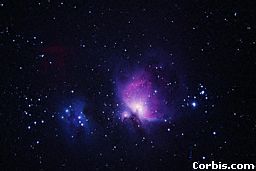DARK MATTER


This is not dark matter.
This is dark matter.
If we have established that the universe is indeed expanding; will it continue to expand forever or will it collapse back on itself? The key to this question is if there is enough matter in the universe to cause gravity to slow and eventually stop the expansion. Optical observations show that there is not nearly enough matter in the universe to slow down, let alone stop the expansion of the cosmos and therefore this inflation would continue forever. However, if there is another kind of matter lurking out there between the stars and the galaxies; there just might be enough matter to close the universe. If this is the case, the expansion will one day stop and all of the galaxies, gas and dust will come hurtling back to the point it started from; resulting in what some like to call the big crunch. If there is not enough matter to close the universe, the ex-
pansion will continue forever until the universe is so spread out that whatever astronomers lived on earth then would not be able to observe a single thing in the cosmos. Either ending is not really appealing, but which one is correct? As of now, not nearly enough matter, dark or otherwise has been detected to close the universe. Some have already concluded that the universe is indeed open and will expand forever. Others, however aren't ready to give in so quickly. They believe that there can still be matter in the universe that has not yet been found lurking in the gas and dust that fill the cosmos and even inside of black holes or perhaps there are some exotic kinds of matter we have not yet even discovered. Only time, perhaps, will allow us to provide some answers to these questions.
To read an essay on dark matter by astronomer Joseph Silk, click here

CLICK HERE